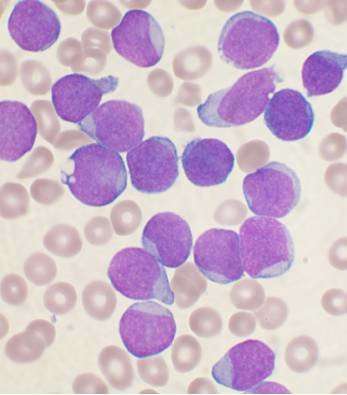Inherited genetic variant influences response to leukemia treatment for some children

Scientists at St. Jude Children's Research Hospital are investigating the inherited genetics of childhood leukemia and how particular gene variations can affect treatment outcomes. The research showed that an inherited variation in the GATA3 gene strongly influences early response to chemotherapy and is linked to relapse in children with acute lymphoblastic leukemia (ALL). The work was published as an advance online publication this week in the Journal of the National Cancer Institute.
Minimal residual disease (MRD) checks for the presence of minute numbers of cancer cells after induction therapy, the first stage of ALL treatment. MRD is one of the strongest predictors of relapse risk for young ALL patients.
"We know there is substantial variability in the way patients respond to ALL therapy. Certain mutations in leukemia cells are associated with drug response, but they certainly do not explain the full spectrum of the observed variability. This is when we realize we need to look at inherited genetic variants as well," said corresponding author Jun J. Yang, Ph.D., of St. Jude Pharmaceutical Sciences and Oncology.

The team conducted a genome-wide association study on children in Children's Oncology Group clinical trials for high-risk B-ALL.This cohort was large enough for the scientists to look for associations between the inherited genetics and end-of-induction MRD levels for 863,370 single nucleotide polymorphisms.
Results of the study showed that an inherited GATA3 variant strongly influenced how patients responded to therapy. This variant is also associated with relapse. GATA3 is known by scientists to encode a crucial transcription factor for the development and differentiation of T cells.
"This variant isn't completely new to us; we've previously found it to be associated with susceptibility to Philadelphia chromosome-like ALL, a rare but high-risk subtype," Yang said. "These new findings about the relationship between the GATA3 variant and MRD solidify the potential utility of inherited variants in how we assess newly diagnosed patients for risk-stratified therapy."
More information: Hui Zhang et al. Association of GATA3 polymorphisms with minimal residual disease and relapse risk in childhood acute lymphoblastic leukemia, JNCI: Journal of the National Cancer Institute (2020). DOI: 10.1093/jnci/djaa138


















